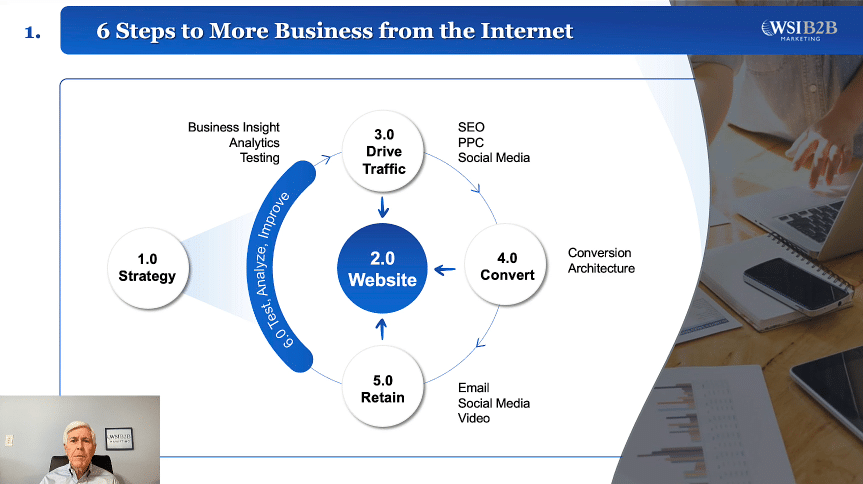Is Your Dealer Locator Deflating Your B2B Sales?
June 2, 2011
Dealer locators are commonplace on B2B websites. After all, many B2B purchases have complicated sales processes and/or require local ongoing support. Using a dealer network may help address these challenges.
What is equally commonplace though, are B2B companies losing valuable opportunities to help potential buyers. This is due to an inherent flaw in dealer locators and the resulting sales process.
Where Dealer Locators Lose Their Way…
Here is how the online sales process is “supposed to go” for a potential b2b buyer using your website.
- Views the website and clicks over to dealer locator
- Finds dealer
- Calls dealer
- Dealer gives them a sweet deal, they close the sale and we all knock off early for a round of golf
Our company works almost exclusively with B2B companies and like many aspects of “real life”, the online lead generation process usually progresses quite different. Here is a compilation of issues your dealer locator likely faces:
- Person viewing website doesn’t find the dealer locator (usability)
- Visitor doesn’t realize they need to find the dealer locator because the article they read has no call-to-action (sell-ability)
- If they do find the dealer locator, they have trouble locating a dealer in their area – databases chronically out-of-date
- They don’t call the dealer, instead writing it down on their to-do list which ends up in the wastebasket 2 days later
- If they do call the dealer, they don’t get an answer. They leave a message but nobody returns their call
- They get an answer, but the dealer doesn’t answer the questions completely and is frequently late with replies
- The dealer is on top of closing the sale (Yay!) but they close the sale with one of your competitors’ products (Boo!)
These are extremely common scenarios. In our experience reviewing online sales processes with clients, the odds of everything going according to plan with a person using a B2B company’s dealer locator are slim.
How to Plug the Holes in Your Dealer Locator to Increase Sales
The biggest problems with dealer locators are a lack of control – your lack of control. Look at all the 100% faith given over during the sales process. We hope the…
- Potential customer is both highly motivated & completely undistracted
- Dealer is highly motivated & completely undistracted
- Dealer is looking out for you & not them or other suppliers
While we like to believe the best in people too, there are ways to bring back some of the control to your sales team, even if only to monitor the sales process. After all, who is more passionate about your products and service than your own people?
How to Reign in Rogue Dealer Locator Processes
How much do sales mean to your organization?
The first step is determining how much of a role your company wants to play in closing the sale. The initial reaction from every company we’ve worked with is they are reluctant to take on extra duties. “After all,” they say, “That’s why we created the dealer locator.”
We understand completely. Changing internal processes is difficult to do, and results in some long meetings, perhaps a few voluminous reports generated, and generally much ado.
To help companies through this tension, we recommend a simple plan
- Run a limited-time test. We simply collect information from the user before they are sent to the page with dealer listings, and add analytics tools to look deep into how people use the website.
- Give it a month to see what happens – we can always switch it back with a click of a mouse.
Here is what we see in almost every test scenario. The resulting jump in leads is shockingly high, at least enough so the company assigns one or more people immediately contacting leads to either
- Do a quick pre-qualification, and “hand them over” to the dealer with a personal introduction – this helps the customer feel more at-ease and taken care of. It also puts your dealer more on the spot to close the sale (with one of your products) since they know you’ll be asking about this contact. (“Hey Steve, did you take good care of Jeanine for us?”)
- Hold the potential customers’ hand all the way through the process and close the sale in-house. If this isn’t possible due to dealer agreements, only use the dealer toward the end when absolutely necessary. This is often useful if the customer is early on in their buying process. Dealer’s usually don’t have up to a year’s worth of automated followup and education built into their internal processes for every product of every supplier.
- Even if your company is not ready to jump into the sales process, at least automatically forward the info to a dealer. This way you eliminate visitor distraction/procrastination.
How much would increasing average order size help your business?
Taking control of the sale gives your organization a chance to upsell and cross-sell your own products instead of throwing your customer in the pool with all your competitors in the dealer network. Your team intimately understands the connection between all your products and services since that is what you do all day. Compare this to a distributor who may be thinking about 10 or even 100 other suppliers that day.
You also get the opportunity by collecting information up-front, to
- put them on a drip email promotion campaign about other products and services
- educate them more about the product they inquired for. Help them consume more of your knowledge and expertise.
- give information to further educate them about the sales process (e.g. top 10 questions to ask your dealer)
- follow up with surveys – how happy were they with the
- product? Stop problems before they end up in a scathing review online. Create raving fans and those negative reviews turn into a now-incredibly-believable positive review
- dealer? We had a client use a follow-up survey to discover 0% of the people responding to the survey felt they were sufficiently helped by their dealer. Ouch!
- support?
Improving your dealer network
You now also have information to check up on your dealers. Who makes the most of the opportunities you essentially hand over on a silver platter?
If you have the relationship with dealers to be a bit more aggressive/playful, you can even use close rates from web leads to pit them against each other via healthy competition. Everyone likes being first on a list related to performance, and certainly nobody likes being last.
Possible downsides?
- The in-house team could do nothing with the leads – had a client not too far back getting 300-500 leads per month for a $15k product and never contacted a single lead. Ouch² I wouldn’t really count this as a downside though since they’re still going through the dealer process. I still only consider this more of a lost opportunity rather than a risk, unless you hired a specific person to handle these.
- Delayed return calls to leads – A higher percent of businesses I’ve worked with than I’d like to admit businesses “try” to get back to a new leads within a day. I guess that’s better than calling next week, because in our experience waiting more than a day you may as well throw the lead away. Current sales studies show though, every hour you wait to return the call dramatically lowers your chance for a sale. This is a “now” generation for information and as much as we’d like to believe our unique selling proposition is truly unique, it probably isn’t… at least for why they customer is calling us that particular day. Regarding callback times – In this age of connectivity, how long does it take to give the lead a quick call? Even if it’s someone doing a quick prequalification and setting an appointment for a deeper conversation? Interns or new grads can even handle those kinds of calls with minimal training. You could even go the route of a call center to have someone set the appointment so long as you can get them decent enough information to handle any basic faqs from the caller.
- True, some people may not fill out the form. However, I have yet to see a client say they were getting less leads by collecting data up-front. If anything, you’re likely weeding out the “tire-kickers”. If we were selling toothpaste in local stores, we’d say collecting info would be overkill, but if you’re selling B2B, there is an expectation among website users for a sales contact.




